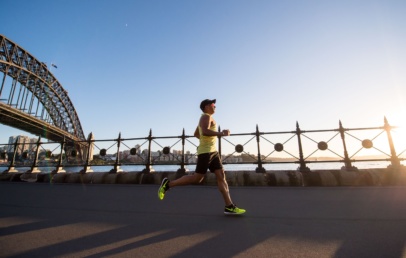
Should You Eat Before or After a Workout to Lose Weight?
When it comes to losing weight, one of the biggest questions people ask is whether they should eat before or after working out. You might have heard that exercising on an empty stomach helps you burn more fat — but is that really the best approach for everyone? The truth is, the right answer depends on you — your goals, your body, and even your schedule.
The Idea Behind Fasted Workouts
“Fasted training” simply means exercising without eating first — typically after an overnight fast. This is common for early-morning exercisers who don’t have time (or appetite) for breakfast before hitting the gym.
The theory behind fasted workouts is that when your glycogen (your body’s stored form of carbohydrates) is low, your body starts using fat as its main fuel source. That sounds great for fat loss — and in the short term, some research supports it. Fasted exercise may slightly increase fat oxidation, meaning your body burns a bit more fat for energy.
However, while that might sound like a magic fat-burning trick, the long-term research isn’t so clear. Just because your body burns more fat during a workout doesn’t always mean you’ll lose more body fat overall. Weight loss ultimately comes down to maintaining a calorie deficit — burning more calories than you consume.
Who Might Benefit from Fasted Training
Fasted workouts can work well for certain people and situations, such as:
- Morning exercisers who prefer to train before breakfast
- Short workouts (under an hour) that don’t demand maximum effort
- People focused on fat burning rather than peak performance
If this sounds like you, fasted training might feel natural and even energizing. But keep in mind — it’s not for everyone. Exercising on an empty stomach can sometimes leave you feeling lightheaded, sluggish, or less motivated to push hard. For longer or more intense sessions, having some fuel beforehand can make a big difference in your energy and endurance.
When Eating Before a Workout Makes Sense
If your workouts are over an hour, high-intensity, or strength-focused, eating beforehand can give your body the energy it needs to perform at its best. Ideally, have a balanced snack or meal one to four hours before your workout.
A good pre-workout snack includes:
- Carbohydrates for quick energy
- Protein to support your muscles
Great pre-workout snack ideas:
- Greek yogurt with berries
- Apple slices with peanut butter
- Trail mix or a handful of nuts and dried fruit
- Peanut butter and banana sandwich
If you only have 10 minutes before exercising, go for something small and easy to digest, like a piece of fruit or applesauce. This quick carb boost can help you avoid that mid-workout energy crash.
Don’t Skip the Post-Workout Meal
Whether you eat before your workout or not, what you eat afterward is crucial. After exercising, your body needs nutrients to repair muscles, replenish glycogen, and support recovery. Try to eat within one to two hours of finishing your workout, especially if you trained on an empty stomach.
Your post-workout meal should include:
- Protein to rebuild muscle tissue
- Complex carbohydrates to restore energy levels
Post-workout meal and snack ideas:
- Protein shake with fruit and milk
- Salmon with sweet potato and broccoli
- Whole-grain turkey wrap with veggies
- Cottage cheese with pineapple
- Chicken and rice with vegetables
If your goal is weight loss, remember that recovery food is still part of your daily calorie intake — so watch portion sizes while keeping meals balanced and satisfying.
There’s no one-size-fits-all rule for when to eat around your workouts. Some people thrive on fasted exercise, while others need a little fuel to perform their best. The key is to experiment and listen to your body.
If you feel strong and energized working out before breakfast — great! Just make sure you refuel afterward. If you feel better with a snack beforehand, that’s perfectly fine too. Consistency and balance matter far more than timing alone.
Ultimately, the best approach is the one that helps you enjoy your workouts, stick with your routine, and support your weight loss goals without feeling deprived.




